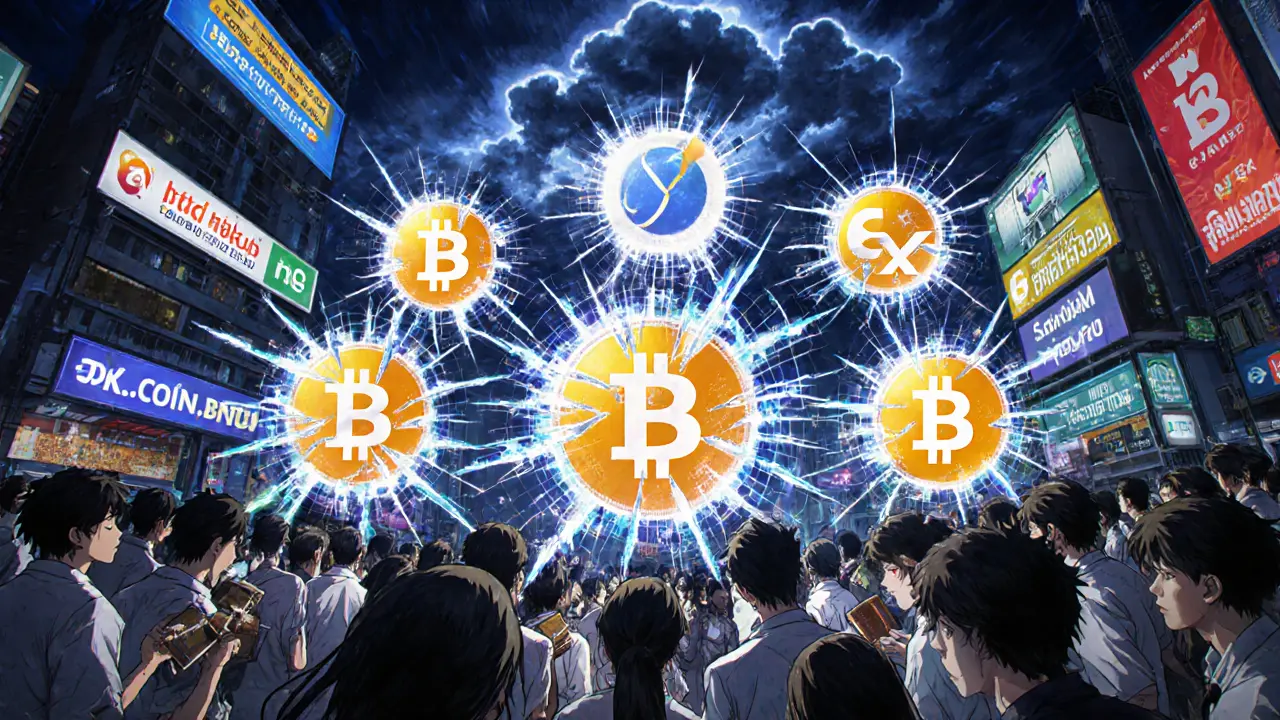

When you trade on an unlicensed crypto exchange, a platform that operates without legal authorization from financial regulators. Also known as unregulated crypto platforms, these sites often look real—they have sleek websites, fake testimonials, and even customer support chats. But behind the surface, they’re built to steal your money, not protect it. Unlike licensed exchanges like LCX or Binance (which follow strict rules in the EU, UK, and elsewhere), unlicensed ones don’t need to verify identities, secure funds, or report suspicious activity. That’s not a feature—it’s a red flag.
These platforms thrive on hype. They lure you with fake airdrops like DSG or VIKC, promise high returns on tokens like AIFlow or STRNGR that have zero trading volume, or push you to trade on fake projects like RONDA that don’t even exist. Many of them mimic real exchanges like dYdX or Sovryn, but while those platforms are transparent about restrictions or limitations, unlicensed ones hide their lack of oversight. They don’t care if you lose money. In fact, they count on it. That’s why you’ll see posts here exposing Hello Global Exchange as a scam, or warning that NFTLaunch IDOs have no official details yet—because real projects don’t pressure you to act now with no documentation.
Unlicensed exchanges often rely on three tricks: fake liquidity, fabricated price data, and phishing links disguised as login pages. They don’t have real order books. They don’t hold your crypto in cold storage. And they don’t have insurance. If the site disappears tomorrow—and many do—you won’t get your funds back. The IRS and FCA don’t monitor them. The EU’s MiCA rules don’t apply. And if you’re in the U.S., UK, or Canada, you’re not protected by any consumer law. That’s why platforms like dYdX, despite calling themselves decentralized, still block users from certain countries—they’re trying to avoid becoming unlicensed by accident.
Spotting one isn’t hard if you know what to look for. No KYC? Big red flag. No public team? Another. No audits, no code on GitHub, no regulatory licenses listed anywhere? That’s a scam waiting to happen. Real exchanges like Sovryn or LCX publish their compliance status. Fake ones bury it. You don’t need to be a tech expert to protect yourself—just ask: Is this platform allowed to operate where I live? Who’s behind it? And if I lose everything, can I get help?
Below, you’ll find real breakdowns of crypto projects that turned out to be empty shells, exchanges that vanished overnight, and airdrops that were never real. These aren’t hypothetical warnings. These are cases where people lost thousands—and we’re showing you exactly how it happened so you don’t become the next victim.

The Philippines froze $150 million in crypto assets tied to unlicensed exchanges in 2025 to crack down on unregulated platforms. Thousands of users lost access to their funds, and recovery is slow and complex. Here’s what happened and what it means for crypto users.

Thailand banned five major foreign P2P crypto platforms in 2025 to fight fraud and money laundering. Only licensed local exchanges can now operate, forcing users to switch and reshaping the country's digital finance future.